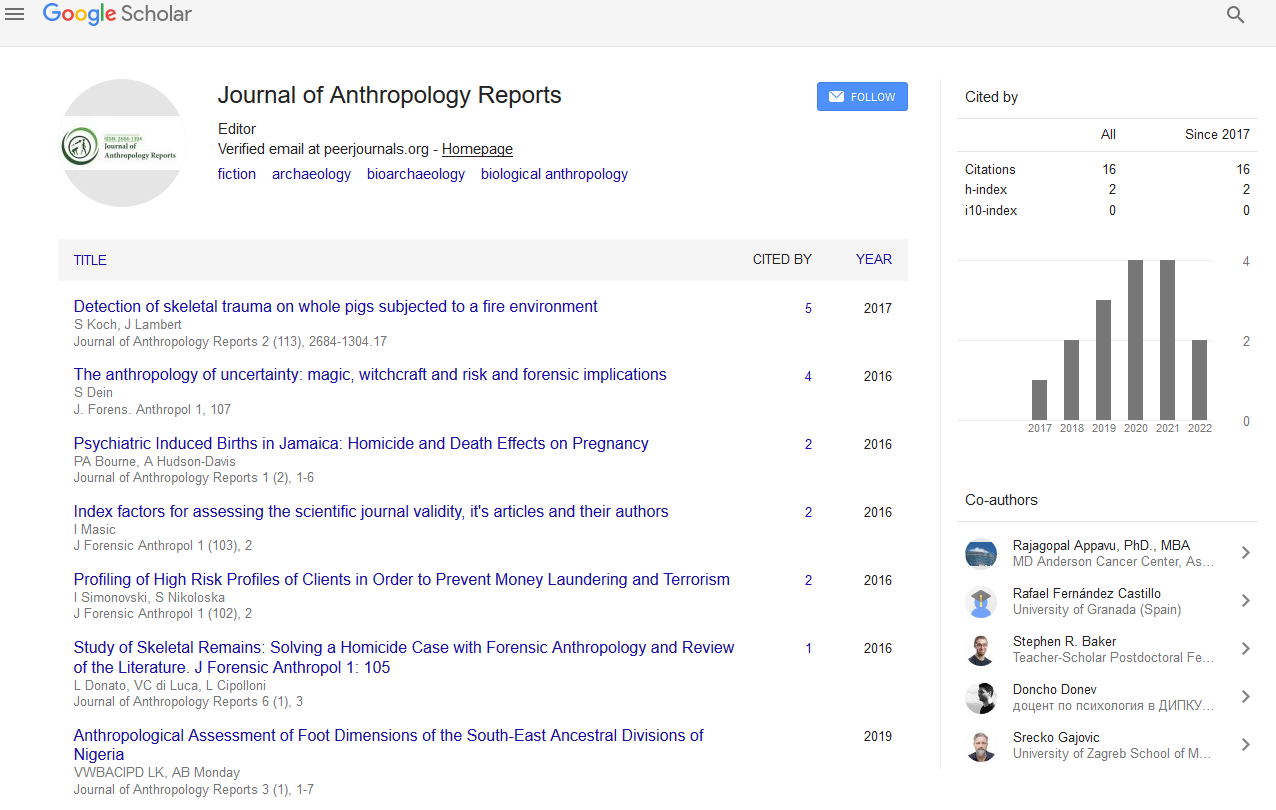Indexed In
- RefSeek
- Hamdard University
- EBSCO A-Z
Useful Links
Share This Page
Journal Flyer

Open Access Journals
- Agri and Aquaculture
- Biochemistry
- Bioinformatics & Systems Biology
- Business & Management
- Chemistry
- Clinical Sciences
- Engineering
- Food & Nutrition
- General Science
- Genetics & Molecular Biology
- Immunology & Microbiology
- Medical Sciences
- Neuroscience & Psychology
- Nursing & Health Care
- Pharmaceutical Sciences
Commentary Article - (2022) Volume 5, Issue 1
Brief Review on Forensic Psychology
Lucia Tuller*Received: 03-Jan-2022, Manuscript No. JFA-22-15477; Editor assigned: 05-Jan-2022, Pre QC No. JFA-22-15477; Reviewed: 09-Jan-2022, QC No. JFA-22-15477; Revised: 24-Jan-2022, Manuscript No. JFA-22-15477; Published: 31-Jan-2022
About the Study
Forensic Psychology is an academic program that applies knowledge of psychology on the legal side. The purpose of this course is to provide a basic understanding of the basics of forensic psychology and its role in the field of criminal justice and society as a whole. Forensic Psychology, a branch of psychology, covers the application of psychological knowledge and methods to both civil and criminal law issues. Traditionally, it has both a broad definition and a narrow definition. The broader classification states that forensic psychology covers all areas of psychological research into the field of law, while the narrower definition describes forensic psychology as to those who come into contact with the legal system and law characterized as clinical professional application. The American Psychological Association (APA) officially recognized forensic psychology as a narrow discipline in 2001, but the specialized guidelines for forensic psychologists were revised in 2013 and are now social psychology, clinical and experimental. Includes all areas of, counseling, and neuropsychology applicable for knowledge of the scientific, technical or professional psychology of law.
In addition to Forensic Psychology, Forensic Psychology is practiced under the comprehensive term Psychology and Law recognized by APA, Division 41 of the American Psychological Association. Forensic psychology as a whole focuses on many aspects that forensic psychology focuses on: how psychology can be applied to the legal community. As such, these subdomains are often interchangeable, except that forensic psychology usually does not include clinical problems within its scope. These issues, especially those directly related to mental health, are best explained by forensic psychology.
Forensic Psychology is so closely intertwined with the field of law that current legal and attorney standards, expert reporting, and the definition and assessment of skills and are the basis of effective functioning. You need to understand the legal basis. Contact judges, lawyers and other lawyers.
Forensic Psychology, Application of Psychology to Legal Issues. In many cases, the purpose is to give an opinion in court. In civil and criminal cases, forensic psychologists can assess individuals to determine questions such as their ability to face trials, the link between mental illness and accidents or crime, and the potential for dangerous behavior in the future. In addition to conducting interviews and psychological tests, they usually collect forensic medical history, including information such as hospital records, police reports, and testimony. In addition, an understanding of related legal issues is expected. In the case of custody, forensic psychologists may be asked to assess the family environment, parents, and personality of the child in order to recommend a custody decision in the best interests of the child.
Forensic Psychology is a relatively new field of psychology popular on television shows such as the Criminal Minds, providing a route for students interested in human behavior and law. Forensic psychologists work with lawyers, judges, and other legal professionals to shed light on the psychological elements of proceedings. Forensic psychologists have the expertise to support the judiciary in civil and criminal affairs. These professionals require strong forensic skills to perform an individual’s psychological assessment in the legal system. Forensic psychologists also need strong verbal communication skills and need to be good at assessing, interviewing, reporting, and presenting cases.
Citation: Tuller L (2022) Brief Review on Forensic Psychology. J Anthropology Rep. 5:116.
Copyright: © 2022 Tuller L. This is an open access article distributed under the terms of the Creative Commons Attribution License, which permits unrestricted use, distribution, and reproduction in any medium, provided the original author and source are credited.

